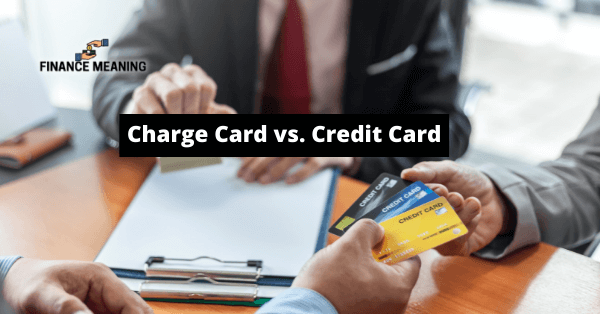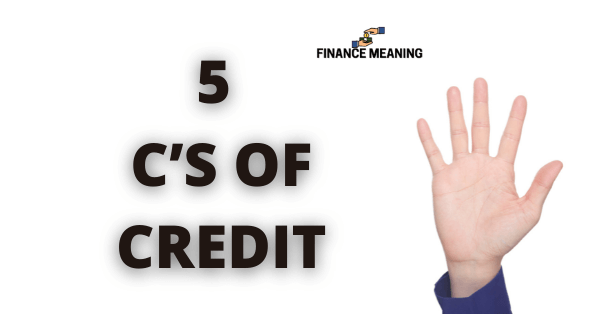Using electronic cards in the 21st century is so common nowadays. People used to make a transaction using a card. In this post, we will focus on what is the difference between a charge card vs. credit card?
The type of card an individual uses depends on personal choice. The market has different electronic cards for the general user’s convenience, including credit cards and charge cards. All of them are working efficiently to provide comfort to their users.
First, we have to know about them and their services. Charge cards provide the cardholder services that enable the cardholder to perform purchases paid for by the card issuer.
Due to the repayment restriction, the cardholder cannot pay the total amount of the account by the closing date. In most cases, the card is either reimbursed monthly or entails late fees and limitations on more use.
Credit cards are a relatively thin rectangular piece of plastic or metal card issued by the financial institution. It lets you borrow some funds from them and make a pre-approval.
The credit card user is bound to pay the credit card bills at the end of a specific date made by the financial institution’s conditions. A user can swipe the credit card to make a payment or an online transaction to transfer money or bills anywhere in the country.
Now, without any further delay, let’s compare charge card vs. credit card by defining both.
What is a Charge Card?
Charge cards are an excellent option for the general public. It has many benefits for the available users to make an electronic payment that charges no interest but requires the user to pay their balance upon receipt of the statement every month. A limited number of issuers offer it.
The basic advantage of having a charge card is that it doesn’t preset purchasing limits. Making a big purchase charge card is an excellent option to complete a transaction compared to a credit card.
What is a Credit Card?
Well, credit cards are a good option for making small transactions. It is issued by a financial institution to the cardholder to pay for merchandise goods and services to pay the amount and other agreed charges. The financial institution will make money through their charges applied by creating a different type of money transaction.
Recommended Read | The 5 C’s of Credit: How Banks Analyze Your Creditworthiness
Key Differences Between a Charge Card vs. Credit Card
The primary difference between a charge card and a credit card is the additional charge that a credit card applies to the cardholder while making a transaction. Because the institution gives you a certain amount of money to borrow, it applies some charges to the cardholder.
One of the main differences between a charge card vs. credit card is that a charge cardholder can balance and roll the debt over month after month. The cardholder should fully pay the balance on a traditional charge card to continue using it for the next month.
In contrast, consumers with credit cards can pay off their purchases on a continuous schedule. The bank will charge interest on the cardholder’s balance if they do not pay the entire balance right away.
How Do Charge Cards Work?
Both cards work in a similar way for making purchases. It also includes bonuses and perks. Yet, they are created to produce a transaction that is paid back promptly.
So, the fundamental difference between a charge card and a credit card is that a charge card applies 0% internet. It is issued to a limited number of users who can pay the bill just after making a transaction.
Charge Card Advantages
Charge cards are an excellent option to make transactions. While using a charge card can make you financially disciplined. Even if you are good at paying your credit card balances, a charge card forces you to be even more careful about your financial health.
This card won’t hurt your credit score, which is a good thing. The main advantages of charge card are below:
No Preset Spending Limit
A charge card is known as excellent in its no preset spending limit. They generally have no preset limits. There is an advantage for you if you are making a more significant purchase while having a credit. It is vital to make sure that you will not go over your credit line on that purchase.
Charge card doesn’t mean unlimited spending, but limit charges are applied according to the user’s financial health. You still have a limit based on your card usage, payment records, financial history, and other relevant factors. However, there are variations in credit card accounts.
Recommended Read | AVERAGE CREDIT CARD LIMITS AND HOW TO INCREASE IT?
No Debt and Interest
A charge card is sound because they have no hidden or additional charges while making a transaction because you have to pay immediately back. A credit card does have costs applied because of borrowing money from the bank.
Rewards and Perks
All charge cards have open-handed spending with benefits and built-in revives by providing traveling convenience. In contrast, stiff competition between credit cards and a charge made credit cards better than charge cards because of their borrowing facility.
Impact on Credit Scores
Responsibly using both cards will help make a good credit score for the cardholder. The other main difference between a charge card and a credit card is known as credit utilization. Let’s discuss it briefly.
Credit Utilization refers to how many available credits you are using at a given time. The charge doesn’t have a preset limit scoring model that cannot calculate that particular ratio. A cardholder will get the advantage of having purchases without having a limit.
How to Choose Between Credit Cards and Charge Cards
You should pay your card balance each month, according to experts. By doing so, credit cards and charge cards are similar for you. But a minor difference between a charge card superior over a credit card because of its power of lavish spending and having 0% interest.
A credit card does offer more flexibility than a charge card. In short, both have different advantages in their similar way. Both provide the same facilities; a user always uses a credit or charge card by always paying your balance altogether.
If you spend a lot of money, you should always pay your card balance and take advantage of the built-in perks. Charge cards may be a worthwhile option in such a situation.
Recommended Read | The Difference Between a Cashier’s Check vs Money Order
Frequently Asked Questions (FAQs)
What is the point of a charge card?
Credit cards have become quite famous for the compensations and advantages they grant on every acquisition. With a credit card, cardholders often accumulate points on dining and travel expenses, as well as statement credits, for a purchase. This makes a charge card a sensible option for all business travels.
Charge cardholders have no preset limit and are good at having a bulk transaction while making a purchase. This feature makes it a good choice compared to a credit card.
Is a charge card suitable for your credit?
A charge card can be a good choice if you want expanded purchases. A specific limit is written on your charge card, and the cardholder is aware of the limitation of using cash. The cardholder must have the good buying power to enjoy everyday rewards.
Moreover, the cardholder must improve your credit score by using the card responsibly and paying on time every month. Since charge cards don’t factor into credit utilization rate, there is less risk of hurting credit scores.
Is a charge account a credit card?
Charge cards are quite similar to credit cards in working with minor changes. The amount on a charge card must be payable in full when it reaches its limit. You cannot roll over from one paying cycle to the next one. The cardholder will be liable to pay the bills while using the card after receiving a payment statement.
What happens if you don’t pay off a charge card?
If a cardholder doesn’t pay his credit card bill, expect to pay late fees, including the increased interest rate and damages to your credit score. If the cardholder continues to miss a payment, your card can be frozen, and your debt could be sold to a collection agency, and the collector of your debt could sue you, and your wages garnished
Does opening a charge card affect credit score?
Since the fundamental advantage of having a charge card that doesn’t have any credit limit, it doesn’t factor into your credit utilization rate, which is the percentage of your total credit you are using. Like most credit reports, applications applying for a charge will appear as a new inquiry on your credit report.
Telling the Difference Between a Charge Card vs. Credit Card
Well! That’s all on what is the difference between a charge card and a credit card till now. We conclude that the difference is minor, but both offer different advantages to its user. They provide the same facilities with varying credit levels.
Having a charge card, users can enjoy the benefits of no preset limits of spending with no interest and enjoying rewards. However, having a credit card must help the cardholder borrow some money from the financial institution to make future payments while using the cash.




